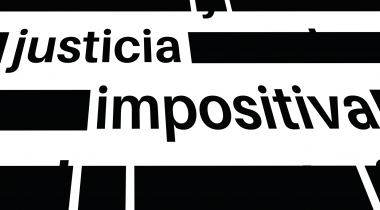
Will Snell ■ The case for supporting economic justice

The crisis of philanthropy
“We live in an age that loves the solution. But a lot of problems are problems of justice rather than problems of tinkering with an engine. And when you have a problem of justice, you can’t just move forward. You have to evaluate the whodunit.”
So says the author and journalist Anand Giridharadas in his recently published book, Winners Take All: The Elite Charade of Changing the World. The book has thrown down the gauntlet to philanthropists – society’s winners – to support efforts to reform the system that has made them rich while failing to improve living standards for the majority, rather than funding ‘sticking plaster’ initiatives that sound good but do little more than tinker around the edges.
Giridharadas argues that the top 1 per cent have a vested interest in perpetuating a system that produces ever greater inequality. In the USA, the incomes of the top 1 per cent tripled since 1980, while those of the bottom half stagnated. Similar trends are visible in other countries. This didn’t happen by itself. Vested interests successfully lobbied for low tax rates, less regulation and fewer social protections. These policies delivered an economy where the rewards of growth go to those at the top.
Many members of this elite recognise that the world has problems, but where they try to fix them, they do so in ‘safe’ ways that do not challenge the rules of the system: for example, by supporting entrepreneurship and social impact investing. Worse still, they support ‘safe’ initiatives while fighting the efforts of governments to address the real structural issues, because this would undermine their status, challenge their legitimacy and hurt their bank balances. (This has parallels with the historic and ongoing efforts of many Western governments to frame the causes of poverty in developing countries as anything other than an unjust global economic system that has been designed by the West to serve its own interests.)
As a result, concludes Giridharadas, most philanthropy is ineffective, and worse, it hides the real solutions. It is ‘fake change’. Many initiatives funded by the winners of the current system do help people in desperate need. But as they give back, elites aim to protect the system that causes many of the problems they try to fix. Their philanthropy masks the harm done by an economy that works in their interests. What we really need, he argues, is real systemic change to address the most pressing global problems in a sustainable way. Elites talk about promoting opportunity for all. But this is only possible when the economy is genuinely inclusive. This means higher taxes, more regulation, better social protections, and properly funded public services. Economic growth alone is not enough to produce a more equal society.
Broken economy, broken politics
At the Tax Justice Network, we strongly support the view that those people with wealth need to recognise that the global economic system that enabled them to become wealthy is deeply flawed and needs to be reformed if we are to have any hope of reversing inequality. And it’s not just about saving the economy – it’s also about saving democracy. Rocketing inequality is fuelling discontent around the world, as the principles and institutions of democracy and global cooperation are undermined and attacked by nationalist demagogues. The social compact that has shored up public support for open, democratic regimes has been weakened by the increasing dominance of a strain of market fundamentalism that has restricted the benefits of economic growth to the very top of society, without sharing it with everyone else.
Over the last 40 years, the neoliberal project has successfully persuaded people that a free and unregulated market is inseparable from individual liberty, and therefore from democracy. But neoliberalism has failed. The global financial crisis in 2008 and the subsequent downwards pressure on living standards has given birth to a breed of right-wing nationalists across the world who falsely blame these problems on immigration and free trade, when the systemic roots of these issues are rising household debt and falling real incomes combined with weak regulation and lack of transparency within the global financial system.
As it happens, the neoliberals were wrong. Liberty and democracy do not go hand in hand with unfettered capitalism. In fact, the opposite is nearer the truth. Democracy can only thrive if the economy can deliver fair and sustainable growth, support the social contract and provide the opportunity for everyone to participate in society. Political freedom is linked to freedom from want. The rise of antidemocratic forces as a result of the failure of neoliberalism to distribute the fruits of economic growth fairly are testament to this dependency. The unequal sharing of the proceeds of growth has been exacerbated by reduced tax and regulation, leading to reduced revenues for governments and the consequent haemorrhaging of public service budgets, coverage and quality. This has undermined public faith in the willingness and ability of governments to take steps to protect the living standards of its citizens and has led to the growing appeal of politicians who identify convenient scapegoats to blame for these problems.
Organisations like the Tax Justice Network, which seeks to make the global tax and financial system fairer and more transparent, have a critical role to play in defending democracy from the demagogues, as well as building the foundations of a fairer economy. The Tax Justice Network pursues systemic changes that address the international inequality in the distribution of taxing rights between countries; the national inequalities – including gender inequalities – that arise from poor tax policies; and the national and international obstacles to progressive national tax policies and effective financial regulation.
Our challenge to philanthropists
We are looking for those brave philanthropists who can give things up, not just give back, and help us. Philanthropists need to get out of the mindset that they can make a real difference by supporting projects that tinker around the edges. The only way to see real change is to tackle the deep structural roots of inequality, and to support governments to provide services for all of their citizens.
This especially applies to people who work in finance and who want to change the world for the better. A recent Guardian article by our colleague Nick Shaxson, author of Treasure Islands and The Finance Curse, outlines the damage done to the wider UK economy by its oversized finance sector. A research paper by Sheffield University estimates that the ‘finance curse’ has taken £4.5 trillion out of the UK economy between 1995 and 2015. Many well-meaning finance professionals give to charities, either directly or through their own foundations; some even embark on finance careers in order to ‘earn to give’, encouraged by the effective altruism movement. But, as Giridharadas has argued, this philanthropy risks doing more harm than good by diverting attention away from the significant damage that the finance sector in its current form does to the rest of the economy and to society at large, and from the urgent need to reform it in order to reduce this damage.
So, whether you work in finance or have become wealthy by other means, or if you work for a foundation that is interested in progressive change: if you want to change the world for the better, don’t just do what’s comfortable. Support genuine, global reform in pursuit of economic justice. Be the change; don’t indulge in ‘fake change’.
And if you’re part of the 99 per cent, not the 1 per cent, then you need to be part of the solution too. Philanthropists won’t change the world by themselves, even if they ditch ‘charity’ in favour of justice. Your support is needed – in voting and campaigning for change, in exercising your rights (and responsibilities) as consumers, and of course in helping those organisations that aim to tackle the systemic problems that we face.
Related articles

Tax policy and gender disparity: A call to action on International Women’s Day 2024

Policy research conference: How a UN Tax Convention can address inequality in Europe and beyond

The IMF’s anti-money laundering strategy review is promising, but it all comes down to implementation

New Tax Justice Network podcast website launched!

People power: the Tax Justice Network January 2024 podcast, the Taxcast

As a former schoolteacher, our students need us to fight for tax justice

El secreto fiscal…tiene cara de mujer: January 2024 Spanish language tax justice podcast, Justicia ImPositiva

The Corruption Diaries: our new weekly podcast

Tax Justice Network Arabic podcast #73: ملخص 2023


